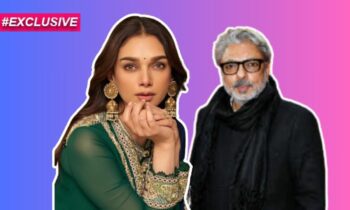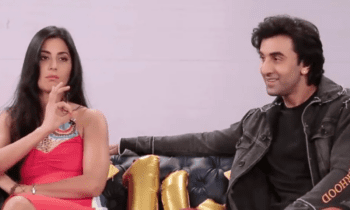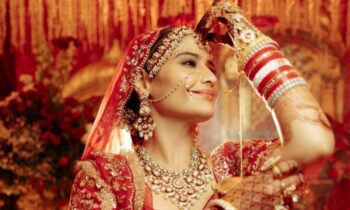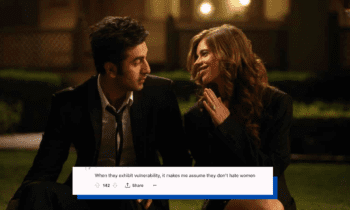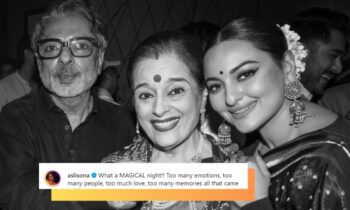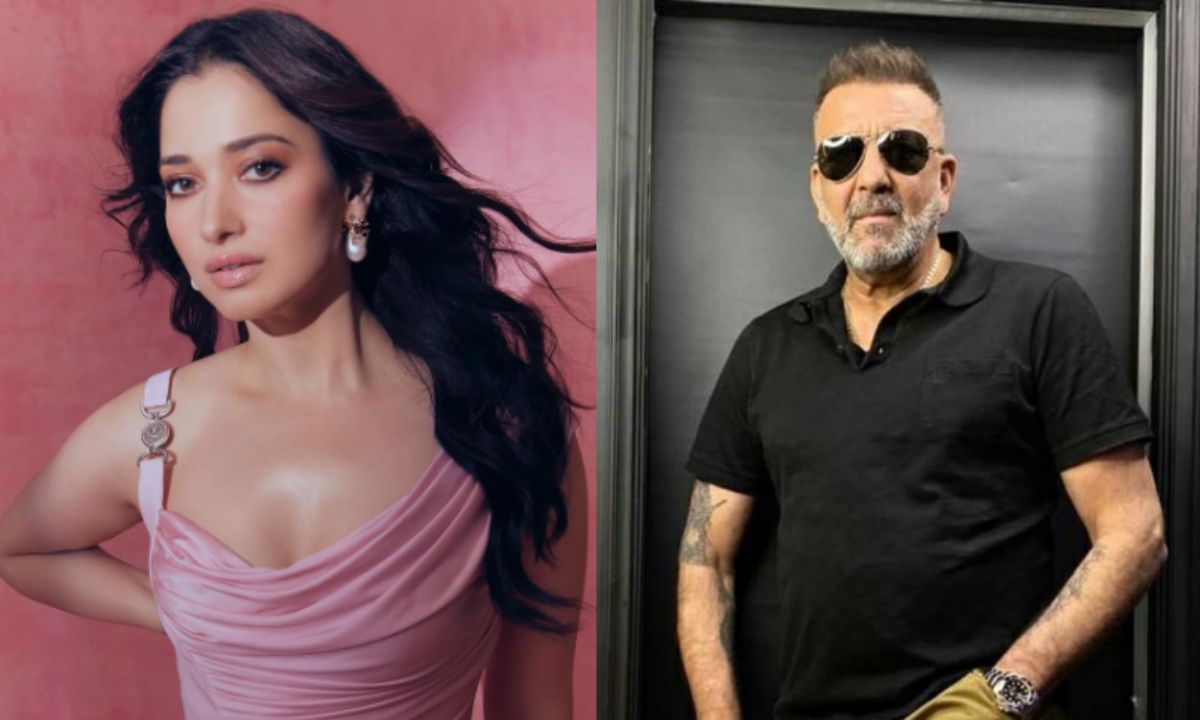Priyanka Chopra Sporting A Diamond Bvlgari Mangalsutra Divides The Internet. Feminist Choice Or Symbol Of Patriarchal Oppression?

Here’s an interesting midweek moral dilemma to ponder over. If you have the freedom to make a choice, but you choose one option over the other because you’re conditioned to any ignore or overlook the demerits, or you don’t understand the problematic origins of the option you choose, is it really a choice? Apologies for the heavy question so early in the day, but you’re going to need to think about this as we talk about Priyanka Chopra and her latest photoshoot for Vogue India today. Why so? Well, because the actor, producer and international icon was spotted wearing an accessory that has caused a massive debate on social media—a diamond mangalsutra she has created with the luxury brand Bvlgari. And the people of the Internet are polarised on whether sporting a mangalsutra, which is marriage signifier worn only by woman, is a feminist choice, or as most feminists believe it to be, propagating a symbol of patriarchal oppression albeit, in a modern, dazzling way?
Priyanka Chopra posted about her magazine cover, her 11th with Vogue since she first posed for them 15 years ago, on her Instagram. She’s clad in a red Dior dress, with jewellery from Bvlgari, of which she recently became the global brand ambassador. The mangalsutra in question, she wrote, was a piece she created with Bvlgari, and would soon be available. Speaking about the collaboration, PeeCee said, “It’s so elegant and chic, designed for the modern Indian woman who takes charge of her own life.”
View this post on Instagram
The post was met with both, oohs and aahs from her fans and those who loved the idea of an international designer brand selling a mangalsutra and from those who were not too happy with Priyanka Chopra, a ‘feminist’ icon, to be platforming a symbol of patriarchal obsession as an exciting accessory that women should covet.
How do you feel when Priyanka chopra makes shit load of money by partnering with Bvlgari to create a "mangalsutra" and says that all women who wear it are modern Indian women in charge of their lives?
Edition 2: dowry in the form of Bvlgari ghunghat 🤔— K Sai Amulya (@AmulyasaiK) September 1, 2021
https://twitter.com/akihsur/status/1432920025749360649?s=20
PC wearing a Bulgari Mangalsutra for the new Vogue cover has me retiring for the week, so much for symbolising opression
— Leesha Agarwal (@Theleeshesh) August 31, 2021
Of course, when these opinions started pouring in, there was a counter from those who disagreed.
https://twitter.com/inlostworlld/status/1432944954062479365?s=20
https://twitter.com/sumeramunir1/status/1432707620633288704?s=20
https://twitter.com/LilacSnorlax/status/1432912323522355203?s=20
Also Read: Priyanka Chopra Says She Was Terrified To Return To Work Amidst The Pandemic, Cried On The Plane. It’s Only Normal!
What’s wrong with a mangalsutra indeed. then, who is right? The reason we need both sides of this argument to be carefully laid out and examined is because we need to be disillusioned about any biased reasons why we might agree or disagree with something. And the best way to do that is to arm ourselves with unbiased knowledge about the subject being discussed. In this case, what feminism is, is a woman’s choice ever truly free and what purpose and symbolism a mangalsutra serves are some of the questions that need answering. Let’s look at the arguments, shall we?
Feminists have always been vocal against symbols of patriarchal oppression that many religions and cultures impose on women—visual markers of marriage like sindoor, bindi, mangalsutra, bangles; items of clothing like the ghoonghat, hijab, burkha, veils; wearing or not wearing particular colours; wearing their hair in a certain style to signify their status, and even observing certain customs like Karva Chauth, which involves fasting for husband’s long life.
However, feminism also involves respecting women’s choices, as long as they are of their own free will. It’s pretty simple, until it isn’t. Just as Priyanka Chopra wore a mangalsutra, which is a visual marker of a woman’s marital status, there are many women belonging to different religions who chose to continue sporting some of the above-mentioned symbols, with the aim of transforming its oppressive symbolise, with the power of choice. Which is to say, a woman who wears a hijab of her own choice, or observes a Karva Chauth fast of her own volition, and not because someone forced her to do so, should be accepted as an empowered feminist choice.
In fact, this current trend of repackaging regressive patriarchal notions with a few modifications in the wrapping paper of choice is quite popular. To my understanding, there is a whole branch of feminism that believes that a more egalitarian rereading of our ancient religious texts and scriptures is what is needed to set women truly free from the shackles of patriarchy. For example, in the Netflix reality fiction series The Big Day, there were many Indian brides and grooms who claimed to have opted for a non-regressive modern Indian wedding by foregoing rituals like ‘kanyadaan’, the bride tying a mangalsutra to the groom as well, and neither spouse or both spouses touching each other’s feet after the pheras. What many pointed out here, is that while these little changes were being marketed as feminist, it fails to the grasp the fact that marriage itself is a patriarchal institution that tends to bind women more than it does men in some obvious and not-so-obvious ways.
Also Read: Can We Talk About How The Big Day On Netflix Promotes Sexist Stereotypes About Women?
Now this is where the dilemma I mentioned in the beginning enters the chat. Sure, women choosing to wear a visual marker of marriage freely, without coercion does no harm. But let’s look at the context of their ability to make this choice. For one, there is clear privilege, either economic or social, that these women can make a choice in the matter. For most women, again due to their socio-economic and political circumstances, there is no choice at all. For example, most women give in to wearing marriage markers to avoid conflict at home and not strain relationships with loved ones. Most women go through the tedious procedure and paperwork of changing their last names and signatures because the children she might have in the future might face issues with legal documentation over their last name. And so on.
Second, there’s the context of origin. A mangalsutra, or its iterations in our culture, stemmed for multiple reasons—a need to identify married women from unmarried women; for married woman to avoid any unwanted advances and flirtations; and also as a sort of sacrament that would grant longer lives and health for their husbands.
With these in mind, we can safely say that nor does the wearing of the mangalsutra ensure preservation of any of these things, nor has it ever. Married women still get eve-teased, flirted with, sexually assaulted and raped. And married women still lose their husbands to death, after which the right to wear this ‘auspicious thread’ is taken away from them. Although, there could be a small rebellion from the widows who choose to wear one even after their husband’s demise, but that still doesn’t change the original significance of the ornament. Yes, previously, in ancient times, men would give symbols of their love to the woman they wished to mate with, which the women then turned into ornaments and wore on their person. But those simple symbolisms of love have long been brushed aside.
There are many who argue that men too wear wedding rings in some customs, so why can’t women wear mangalsutra? To which, it can be said that wedding rings are still a more equal marker of marriage, since usually both men and women wear them. As for a mangalsutra, there is no ‘male counterpart’ of the same. If it is not about marking a woman as married, and just for a spouse’s long life, shouldn’t the husband wear something similar?
Currently, you will see outrage over people calling the mangalsutra sported by Priyanka Chopra as a symbol of brahmanical patriarchy. There is also outrage from those frustrated that some women choose to call Priyanka’s decision to wear a mangalsutra her feminist choice (which seems to be making a lot of sense to me). And it is okay if you cannot pick a side immediately. Read up and educate yourself about it first, and the answer will come to you. And as I read on a certain Instagram thought leader’s stories, as shared by one of her followers, the best you can do is be self-aware about your thoughts and actions. We love a good discourse, because it is this discourse that will take us from darkness to enlightenment, eventually.
As for a general, straightforward fashion opinion… do we really need a ‘Bvlgari’ mangalsutra? Like, really? Of all the things? Come on, Priyanka. Do better.






